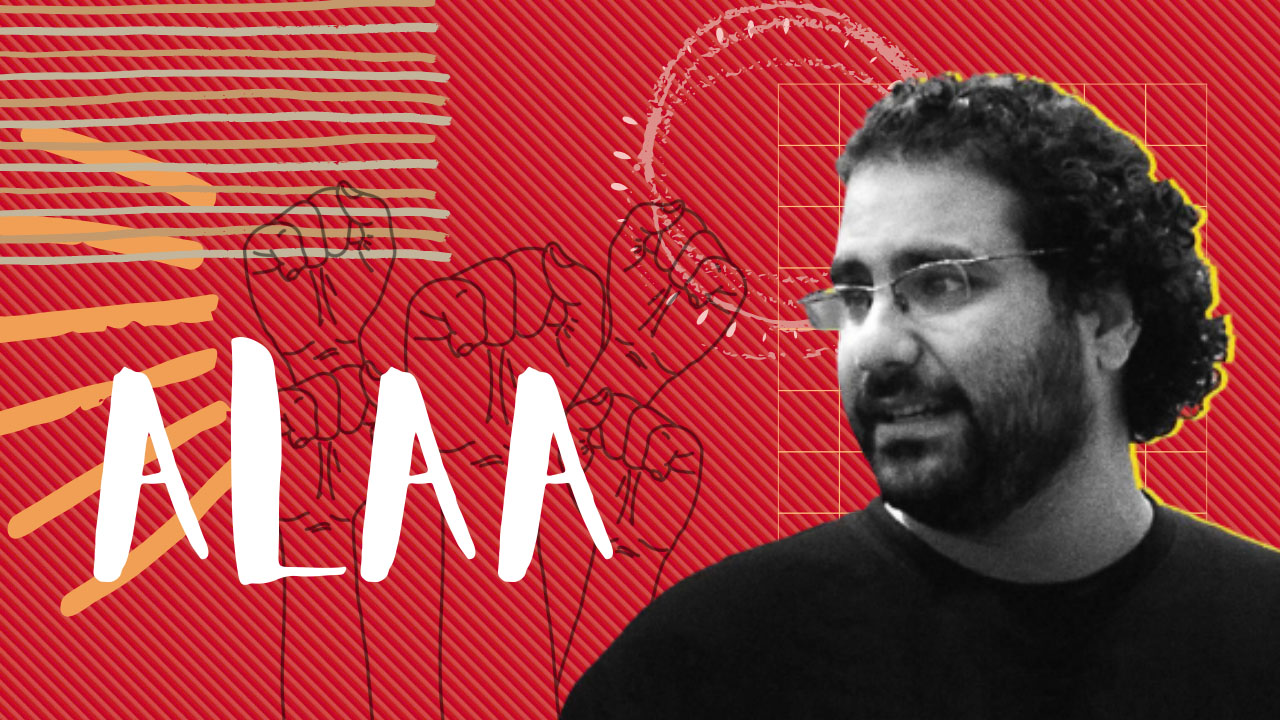Alaa Abd El-Fattah was first arrested for his role in the 25 January Revolution of 2011, which led to the toppling of then president, Hosni Mubarak after nearly 30 years in power. He is one of thousands who have been arbitrarily detained in Egypt, accused of terrorism charges and breaking a law that bans protest in Egypt.*
Yasmine El Rashidi
The political prison system in Egypt is intended to break a person. To subject a body to such emotional and physical torment so as there is no choice but to resign oneself, of will, to the desire for death. In September, a young Egyptian poet, in prison since 2018 for his song lyrics, tried to end his life by way of hanging. Such stories — of attempts to cut lives short, or indeed successfully ending them by torture — come by the week.
It is against this backdrop that the writer, thinker, computer programmer, and human rights defender, Alaa Abdel Fattah, 41, remains in the high-security Wadi Natroun Prison on the outskirts of Cairo. It is his eighth imprisonment under three regimes, totaling almost 11 years behind bars. When Alaa was arrested this last time in September 2019, on the usual fabricated charges by a regime fearful of the clear-eyed eloquence of his written words, the prison warden threatened that Alaa would never make it out of those walls alive. He was subsequently beaten, tortured, and subjected to the harshest conditions: solitary confinement and deprivation from natural light, exercise, and the amenities that offer the very minimal sustenance that make it possible, under such circumstances, to survive (radio, newspaper, books, physical family visits).
And yet, despite these calculated deprivations, and in the footsteps of legends who have somehow emerged triumphant despite decades of time spent in unjust confinement, Alaa has continued to think, write, and share his philosophical musings and considerations with the world, including most recently in You Have Not Yet Been Defeated: Selected Works (Seven Stories Press 2022). He has somehow managed to smuggle essays, letters and manifestos out from behind the prison walls. In concise, lyrical, deeply-thought arguments, he has considered everything from the monopoly of Uber, social media capitalism, and the overuse of emojis, to climate change, fatherhood, and of course the faltering of Egypt’s 2011 uprising and the democratic process (he has always been ten steps ahead of the rest of us in his analysis).
Alaa Abd El-Fattah—the Revolutionary el-Sissi Fears Most?
Throughout his years of imprisonment, Alaa lost not only his father, but the majority of his son’s first 12 years of life alongside his own lost years. You might imagine that this would both embitter and break him, that it would be anything but ordinary for him to continue to problem-solve for our country’s future. And yet, he has, even as many of us are otherwise giving up. Even in conceding defeat, in acknowledging a political climate that represents a return to an authoritarian status quo, Alaa keeps trying to offer roadmaps — scenarios of possibilities with all the delicate considerations of what path might lead where.
In 2022, after sustaining a 227-day hunger strike that culminated in a dry fast orchestrated to coincide with the United Nations Climate Conference in Egypt, Alaa managed to catapult himself onto the agenda of almost every nation-state leader present at COP27. He became the most written-about topic during the month-long conference, dominating the international press. That he almost died in the process is a footnote, in some sense, to his ability and resolve to have so carefully thought through his message to the world: This spotlight was not about bringing attention to himself, but rather, this was his means of exposing to the world the plight of 60,000 political prisoners languishing alongside him in Egypt’s jails. As a writer and thinker, this has always been Alaa’s greater cause: using his words to advocate for the rights of those without platforms to campaign for themselves.
*Despite ending his hunger strike in November last year, no indication has been received from the Egyptian government regarding Alaa’s release despite calls of support from Rishi Sunak, the UK’s Prime Minister, British MPs and peers that have expressed concern over the lack of progress to free a jailed British Egyptian activist.




